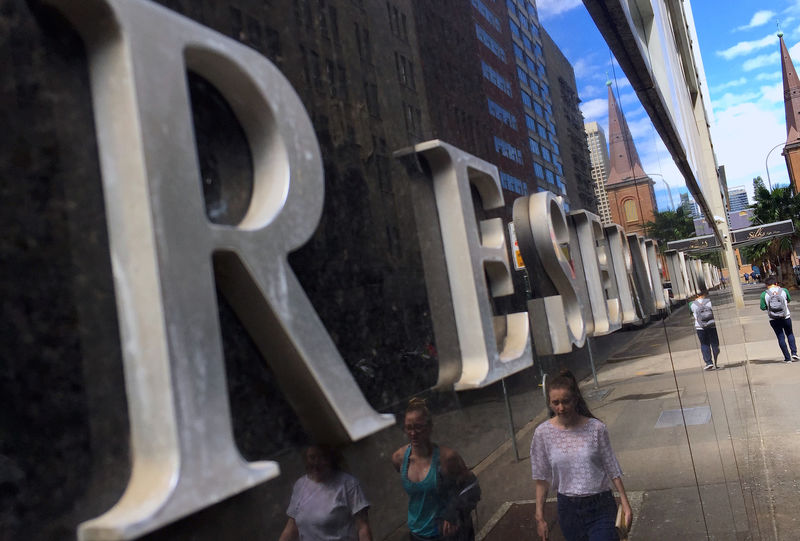(Bloomberg) -- The Reserve Bank of Australia bowed to market pressure Tuesday, abandoning a bond-yield target and signaling it’s open to raising interest rates earlier than its previous 2024 guidance following a quickening of inflation.
The decision to scrap the 0.1% yield target on the April 2024 security comes after a bond market selloff last week and amid an improving domestic outlook underpinned by high vaccination rates. The RBA kept its cash rate at a record low 0.1%, as expected.
“Given that other market interest rates have moved in response to the increased likelihood of higher inflation and lower unemployment, the effectiveness of the yield target in holding down the general structure of interest rates in Australia has diminished,” Governor Philip Lowe said in a post-meeting statement.
Yields on the April 2024 bond the RBA had previously targeted fell about 3 basis points while the Australian dollar dropped to trade at 74.96 U.S. cents at 2:36 p.m. in Sydney.
Australia is now caught up in the global inflation debate that’s seen bond markets press policy makers worldwide to act promptly to counter rising price pressures. Data last Wednesday showed Australia’s core consumer prices jumped back inside the RBA’s 2-3% target for the first time in six years, sending yields surging.
They climbed further over the following two days when the central bank opted not to defend its 0.1% target on the April 2024 bond.
The RBA’s policy shift was underpinned by revisions to its economic forecasts, with the detailed suite of numbers to be released Friday in its quarterly Statement on Monetary Policy.
The Australian central bank’s move comes after its Canadian counterpart last week ended its bond-buying stimulus and just before the Federal Reserve is expected to announce a pullback of its debt purchases. The Bank of England also faces inflationary forces that have markets anticipating a hike at Thursday’s meeting or the one just before Christmas.
The speed of change in the narrative is remarkable given the RBA just last month reiterated that conditions for a rate increase were unlikely to be met before 2024. It maintained there was plenty of slack in the labor market and that faster wages growth would be needed to return inflation sustainably to the 2.5% midpoint of its target.
The RBA’s predicament is the latest example of how unexpectedly strong inflation around the globe is putting pressure on central bankers to rethink policy timelines as the tradeoff shifts between supporting pandemic-hit economies and overjuicing prices.
As higher vaccination rates revive optimism about the international outlook and supply shocks drive up raw materials costs, the market is signaling its view that inflation is a genuine threat and policy makers need to respond rapidly to prevent it escalating further.
©2021 Bloomberg L.P.
